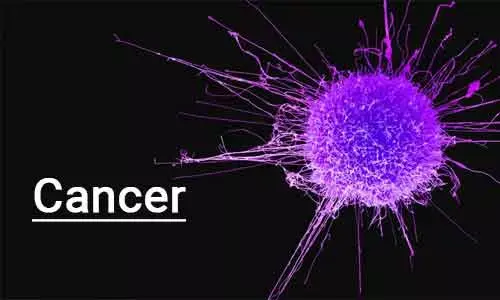- Home
- Medical news & Guidelines
- Anesthesiology
- Cardiology and CTVS
- Critical Care
- Dentistry
- Dermatology
- Diabetes and Endocrinology
- ENT
- Gastroenterology
- Medicine
- Nephrology
- Neurology
- Obstretics-Gynaecology
- Oncology
- Ophthalmology
- Orthopaedics
- Pediatrics-Neonatology
- Psychiatry
- Pulmonology
- Radiology
- Surgery
- Urology
- Laboratory Medicine
- Diet
- Nursing
- Paramedical
- Physiotherapy
- Health news
- Fact Check
- Bone Health Fact Check
- Brain Health Fact Check
- Cancer Related Fact Check
- Child Care Fact Check
- Dental and oral health fact check
- Diabetes and metabolic health fact check
- Diet and Nutrition Fact Check
- Eye and ENT Care Fact Check
- Fitness fact check
- Gut health fact check
- Heart health fact check
- Kidney health fact check
- Medical education fact check
- Men's health fact check
- Respiratory fact check
- Skin and hair care fact check
- Vaccine and Immunization fact check
- Women's health fact check
- AYUSH
- State News
- Andaman and Nicobar Islands
- Andhra Pradesh
- Arunachal Pradesh
- Assam
- Bihar
- Chandigarh
- Chattisgarh
- Dadra and Nagar Haveli
- Daman and Diu
- Delhi
- Goa
- Gujarat
- Haryana
- Himachal Pradesh
- Jammu & Kashmir
- Jharkhand
- Karnataka
- Kerala
- Ladakh
- Lakshadweep
- Madhya Pradesh
- Maharashtra
- Manipur
- Meghalaya
- Mizoram
- Nagaland
- Odisha
- Puducherry
- Punjab
- Rajasthan
- Sikkim
- Tamil Nadu
- Telangana
- Tripura
- Uttar Pradesh
- Uttrakhand
- West Bengal
- Medical Education
- Industry
Anti-depressant repurposed to treat childhood cancer

A new study has found that a commonly prescribed anti-depressant may halt growth of a type of cancer known as childhood sarcoma, at least in mice and laboratory cell experiments. The findings, from researchers at Karolinska Institutet in Sweden and MD Anderson Cancer Centre in Texas, ignite hope of novel treatment strategies against this disease. The study is published in the journal Cancer Research.
"Although this study was done in mice and we do not yet know how translatable the results are to humans, it gives us hope for repurposing common drugs for young cancer patients desperately requiring better treatment options," says the study's first author, Caitrín Crudden, a former PhD student in the receptor signaling pathology group at the Department of Oncology-Pathology at Karolinska Institutet.
The study examined commonalities between two large groups of cell surface receptors, the so-called G protein-coupled receptors (GPCRs) and the receptor tyrosine kinases (RTKs). GPCRs are targeted by more than half of all developed drugs to treat conditions such as allergies, asthma, depression, anxiety and hypertension, but have so far not been widely used to treat cancers.
RTKs, on the other hand, are targeted by drugs against cancers, such as breast and colon cancers, due to their implication in a variety of cellular abnormalities. One receptor in the RTK family that plays a key role in many cancers, including childhood sarcoma, is the insulin-like growth factor receptor (IGF1R). However, previous attempts to develop anti-cancer drugs against this receptor have failed.
In this study, the researchers scrutinised the IGF1R and found that it shares a signaling module with the GPCRs, meaning it may be possible to affect its function through drugs targeting the GPCRs. This strategy opens new possibilities of repurposing well-tolerated drugs to silence this tumour-driving receptor and thereby halt cancer growth.
To test their hypothesis, the researchers treated childhood (Ewing) sarcoma cells and mouse models with Paroxetine, an anti-depressant drug that impairs a serotonin reuptake receptor that is part of the GPCR-family. They found that this drug significantly decreased the number of IGF1R receptors on the malignant cells and thereby suppressed the growth of the tumour. The researchers also uncovered the molecular mechanism behind this cross-targeting.
"We have developed a novel strategy to control the activity of these tumour-driving receptors by striking the GPCRs," says Leonard Girnita, researcher in the Department of Oncology-Pathology, Karolinska Institutet, and principle investigator of the study. "To our knowledge this represents a new paradigm for the entire class of cancer-relevant RTKs and could be used as a starting point for the rational design of specific therapeutics in virtually any pathological conditions. This is especially important considering the huge number of GPCR-targeting medicines already in clinical use and with low toxicity."
Next, the researchers plan to develop their strategy to selectively cross-target multiple RTKs and to verify their findings in a clinical setting.
https://cancerres.aacrjournals.org/content/early/2020/11/04/0008-5472.CAN-20-1662
Hina Zahid Joined Medical Dialogue in 2017 with a passion to work as a Reporter. She coordinates with various national and international journals and association and covers all the stories related to Medical guidelines, Medical Journals, rare medical surgeries as well as all the updates in the medical field. Email: editorial@medicaldialogues.in. Contact no. 011-43720751
Dr Kamal Kant Kohli-MBBS, DTCD- a chest specialist with more than 30 years of practice and a flair for writing clinical articles, Dr Kamal Kant Kohli joined Medical Dialogues as a Chief Editor of Medical News. Besides writing articles, as an editor, he proofreads and verifies all the medical content published on Medical Dialogues including those coming from journals, studies,medical conferences,guidelines etc. Email: drkohli@medicaldialogues.in. Contact no. 011-43720751


